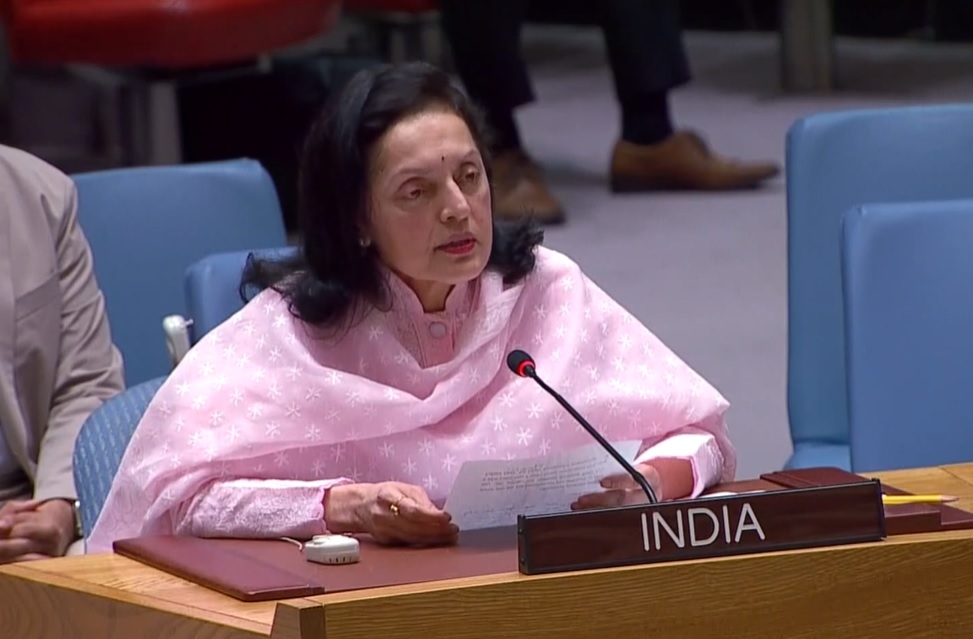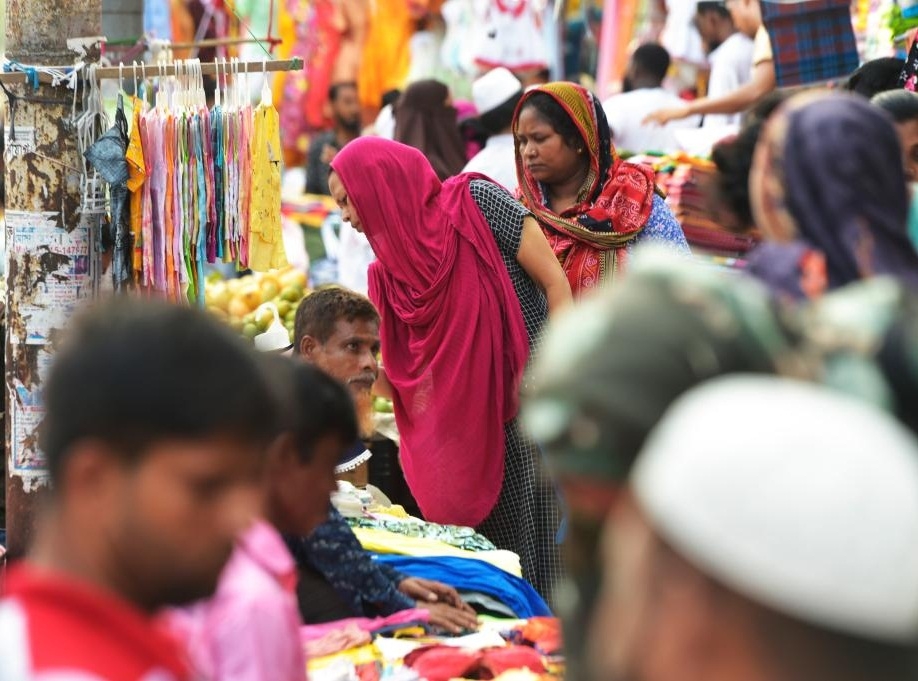India’s Permanent Representative Ruchira Kamboj called for inclusive dialogue to fight bigotry, reports Arul Louis
India has denounced attacks on all religions and called for inter-religious dialogue encompassing all faiths to counter the rising climate of bigotry.
India’s Permanent Representative Ruchira Kamboj said on Wednesday that India was deeply concerned over “the growing increase in attacks on religious places, including churches, gurdwaras, monasteries, mosques, temples, synagogues and other religious sites”.
“This is the time for us to work together to strengthen human fraternity and to intensify our efforts in building a culture of peace,” she said speaking on a resolution on the ‘Culture of Peace’.
Kamboj suggested that to counter the rise of religious phobias, “inter-religious dialogue should be inclusive, broader and encompass all religions and all faiths”.
The Permanent Representative spelt out a non-exclusionary approach to religions quoting Swami Vivekananda’s maxim, “we believe not only in universal toleration but we accept all religions as true”.
“We are deeply concerned with growing manifestations of intolerance, discrimination or violence against followers of both Abrahamic and non-Abrahamic religionsa,” she said.
“We strongly condemn acts of discrimination or violence motivated by anti-semitism, Christianophobia, and Islamophobia. We also expressed deep concern on the growing increase in attacks on religious places, including churches, gurudwaras, monasteries, mosques, temples, synagogues, and other religious sites.
“This principle of equal respect and treatment for all faiths has been a part of India’s ethos for thousands of years (and) this principle is also integral to the Constitution of India.
“‘Sarva dharma sama bhava’ is a unique concept of Indian secularism, which maintains that all religions are inherently good and worthy of respect,” she added.
India’s approach of embracing religions and denouncing attacks was in contrast to the focus at the UN in statements and resolutions on the three religions, Judaism, Christianity and Islam that trace their roots to the Jewish Prophet Abraham.
Secretary-General Antonio Guterres, for example, told the Security Council earlier on Wednesday that “around the world, we are witnessing a groundswell of xenophobia, racism and intolerance, violent misogyny, anti-Muslim hatred, virulent anti-Semitism, and attacks on minority Christian communities”.
And denouncing the poison of hate spreading radicalisation through social media, he said: “The perpetrators of the heinous attacks on a mosque in Christchurch, a synagogue in Pittsburgh, and a church in Charleston all were radicalised online.”
His spokesperson Stephane Dujarric was asked about Guterres mentioning only three religions when there has been a spate of attacks on Hindu temples in the US, Canada and Australia.
Dujarric said Guterres “is concerned about the attacks that we’ve seen around the world on various religions and especially on places of worship”.
“When religious groups have are living in a community where they’re a minority, and where they’re vulnerable. It is incumbent on people to lower (the rhetoric), to increase the dialogue, increase tolerance, and on host communities to ensure that minorities are protected.”
While speaking on the resolution on the Culture of Peace Declaration, Kamboj said: “We firmly believe that the exercise of the right to freedom of opinion and expression and full respect for the freedom to seek, receive and impart information play an important role in promoting pluralism and combating religious intolerance.”
She also called attention to the dangers of terrorism “which is a manifestation of intolerance and violence” and “is the anti-thesis of all religions and cultures”.
“The world should be concerned by terrorists who use religion to justify these acts and those who support them in this quest and we must adopt zero tolerance against terrorism and violent extremism.”
Wednesday’s resolution introduced by Bangladesh and cosponsored by India was the annual follow-up to the Declaration on the Culture of Peace adopted in 1999.
The resolution that was adopted unanimously urged setting up programmes to wean youth away from terrorism, violence and xenophobia.
ALSO READ-UN unanimously backs India’s peacekeeper memorial project














